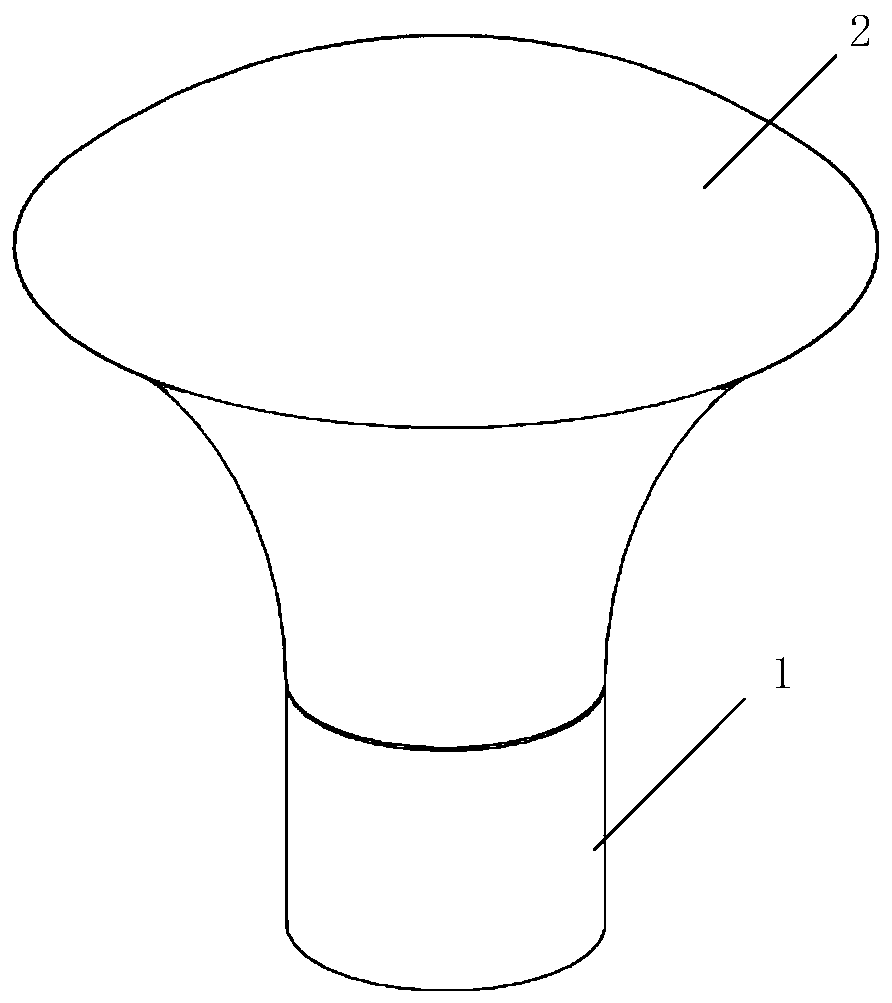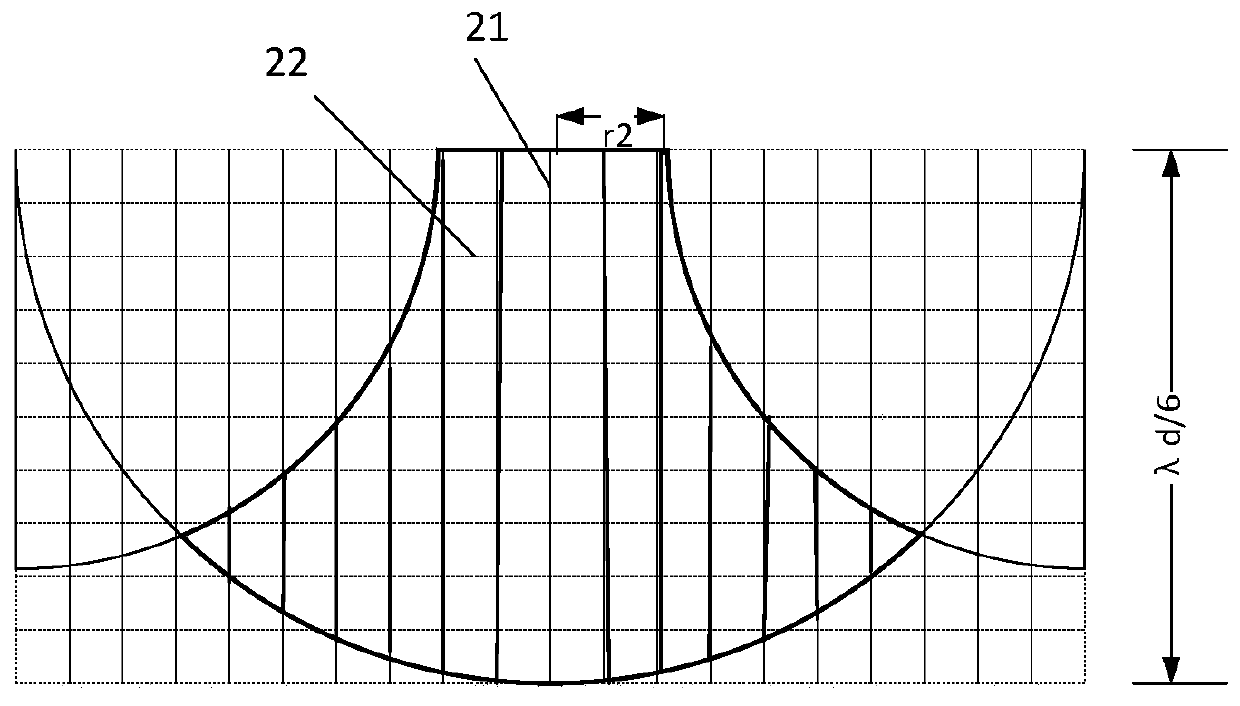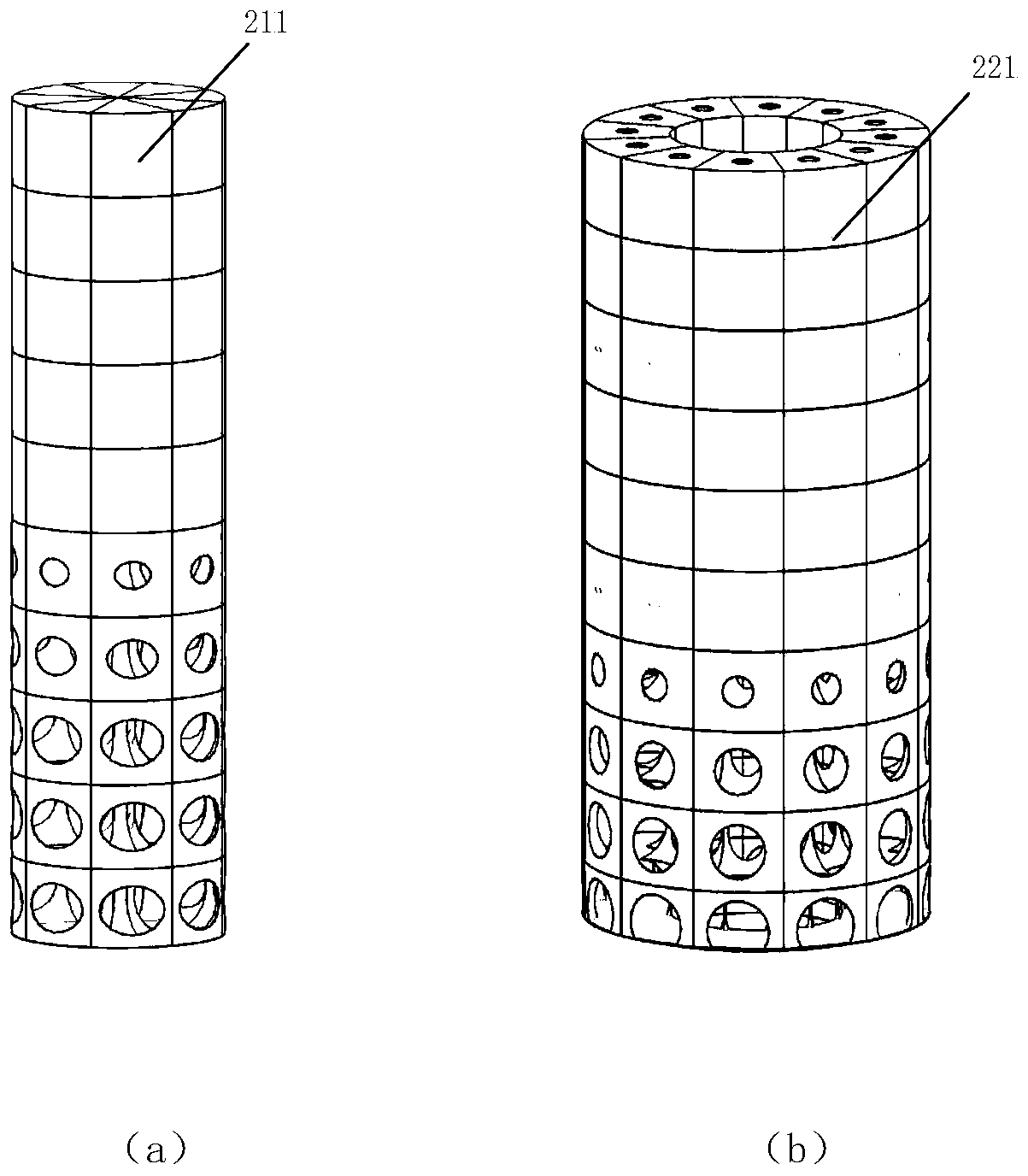Circular waveguide antenna based on dielectric lens
A circular waveguide and dielectric technology, applied in the field of circular waveguide antennas, can solve problems affecting the efficiency of incident wave collection, and achieve the effects of avoiding insufficient collection of incident waves, simple design, and low price
- Summary
- Abstract
- Description
- Claims
- Application Information
AI Technical Summary
Problems solved by technology
Method used
Image
Examples
Embodiment Construction
[0031] Below in conjunction with accompanying drawing and specific embodiment, the present invention is described in further detail:
[0032] refer to figure 1 , a circular waveguide antenna based on a dielectric lens, comprising a circular waveguide 1, and a receiving end of the circular waveguide 1 is fixed with a dielectric lens 2.
[0033] refer to figure 2, the dielectric lens 2 includes a cylindrical medium 21, and a 6-layer circular cylindrical medium 22 nested from the inside to the outside with the cylindrical medium 21 as the center, forming a spherical bottom surface and a flat bottom surface Conical frustum structure, the side of the frustum structure is a curved surface formed by rotating the straight line where the waist of a right-angled trapezoid perpendicular to the bottom is the axis of rotation, and the waist that is not perpendicular to the bottom and is sunken inward into a circular arc, where: Described cylinder medium 21, its structure is as image 3...
PUM
 Login to View More
Login to View More Abstract
Description
Claims
Application Information
 Login to View More
Login to View More - R&D
- Intellectual Property
- Life Sciences
- Materials
- Tech Scout
- Unparalleled Data Quality
- Higher Quality Content
- 60% Fewer Hallucinations
Browse by: Latest US Patents, China's latest patents, Technical Efficacy Thesaurus, Application Domain, Technology Topic, Popular Technical Reports.
© 2025 PatSnap. All rights reserved.Legal|Privacy policy|Modern Slavery Act Transparency Statement|Sitemap|About US| Contact US: help@patsnap.com



